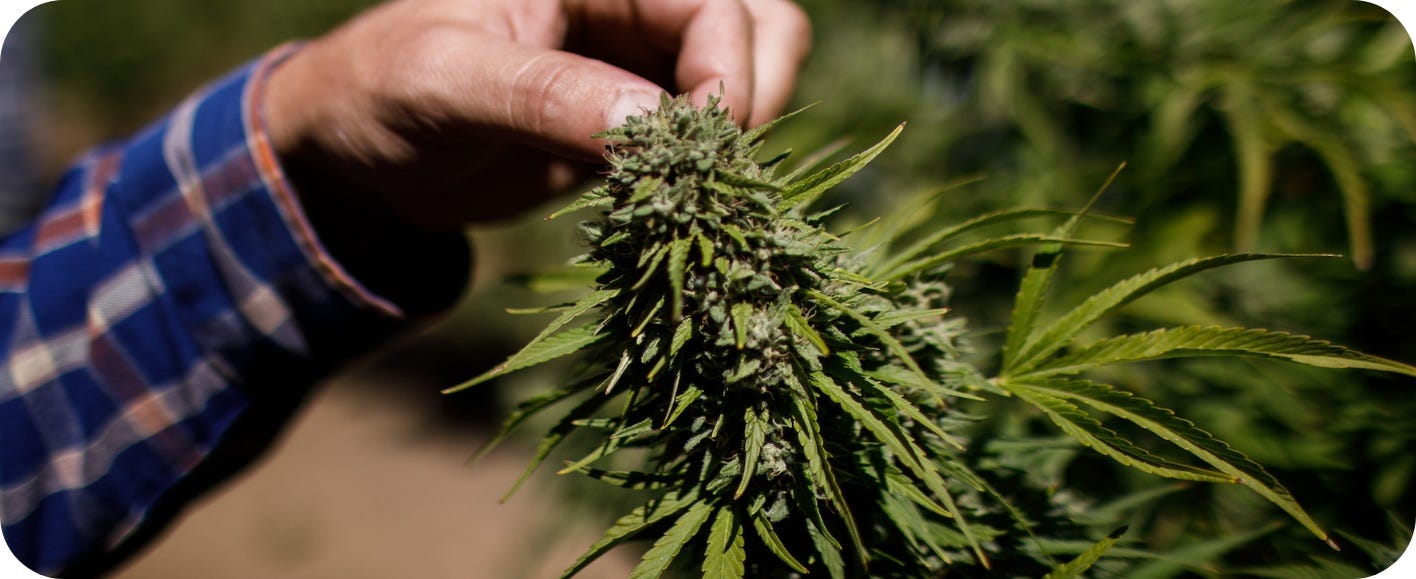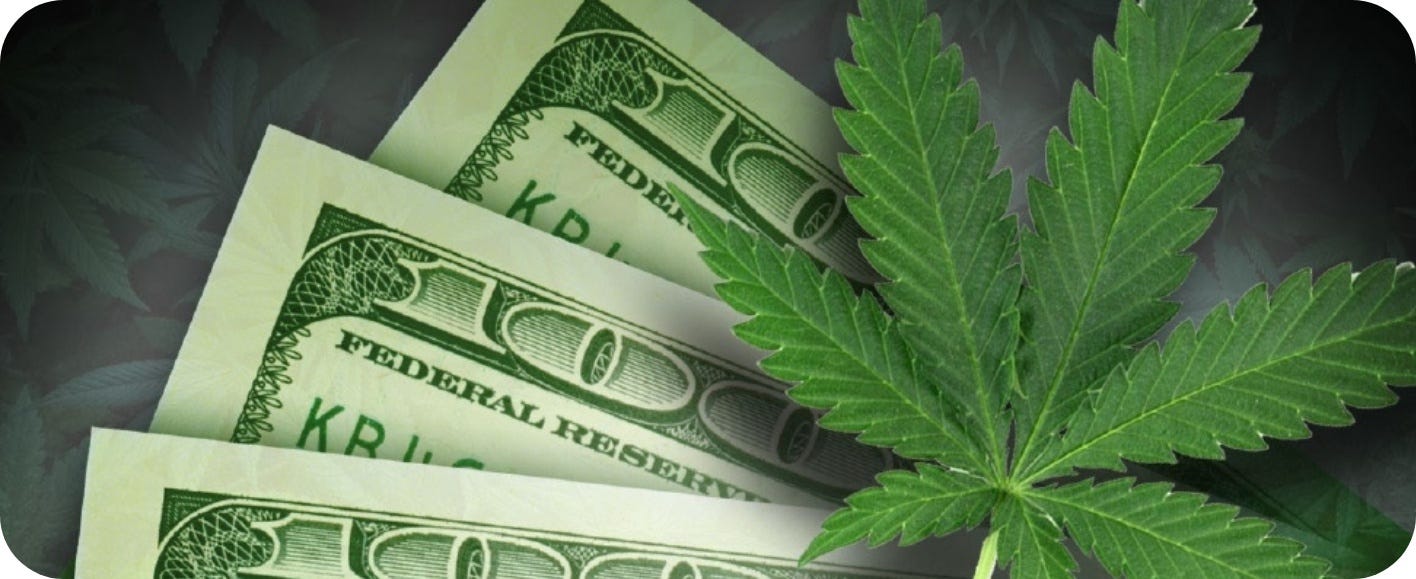Cannabis Sales Soar
Cannabis flower sales continue to soar, as beverages continue to disappoint...
Welcome to Four PM — a newsletter that provides the top cannabis industry news from Canada to California.
In Today’s Issue 💬
→ Flower Sales Reach New Highs. 🚀
→ The Massachusetts Milestone. ✅
→ Cannabis Pharmaceutical Sales. 🔬
Cannabis Sales Soar In British Columbia
Cannabis sales have increased some 120% in the last year alone in B.C…
When Canada legalized cannabis, many of the most talented cannabis growers were sidelined as a result of the licensing structures put in place.
Some three years later, Canada is finally back on track with an ever-increasing number of craft growers supplying products to the legal market.
Supply chains…
Upon legalizing cannabis, each province in Canada was given the choice as to how its supply chains would operate.
In British Columbia — the lawmakers granted themselves a monopoly to distribute legal cannabis across the province, however, this decision required significant upfront capital investments.
In 2020, however, the province posted a significant profit from their operations netting $10.8 million USD in profits — up $16 million USD from the year prior when they lost $4.2 million USD.
Prices continue to fall…
B.C has an incredibly rich history with cannabis, and consumers have very high expectations when purchasing products.
Subsequently, many consumers were more than satisfied to continue purchasing cannabis from their previous sources, however, as prices continue to fall, times are changing.
In the last year alone the average price per gram of flower declined by 25% in B.C compared to 2019 as Canadian producers continue to produce close to 10x the required quantity of cannabis to match consumer demand.
Sales are soaring…
Based on the data outlined in the newly released report, adult-use cannabis sales increased 140% from 2019 > 2020 in B.C.
Despite declining sales in other provinces, dried flower accounted for over 65% of total sales in the province home to some 5,000,000 people.
Pre-rolls came in second place claiming 15.58% of total sales, however, most surprising is the fact that edibles & beverages accounted for less than 1.5% of total sales, with beverages claiming 0.08% & edibles 1.41% of total sales.
On average edibles account for 9.9% of sales in U.S markets, however, a key factor of consideration is that edibles are capped at 10mg of THC in Canada, whereas in several U.S states consumers aren't subject to such restrictions.
Our Take
It’s very interesting to see the impact declining prices can have on consumer demand for cannabis in a region where consumers are very accustomed to purchasing cannabis from illicit sources.
This data paints a very clear picture in my eyes — cannabis consumers are more than willing to purchase products from the legal market as long as products are priced competitively vs illicit market.
The Massive Milestone For Massachusetts
Cannabis sales are on track to surpass $1 billion USD in 2021 alone…
In 1911, Massachusetts became the very first state to criminalize cannabis.
Fast forward to 2021, and Massachusetts has passed a very significant milestone having surpassed $2 billion USD of adult-use cannabis sales since legalization.
Rewinding the clocks…
Prior to the “Marihuana Tax Act” in 1937 which prohibited cannabis at the federal level in the U.S, a number of states had already made the decision to limit the sale of both hemp and cannabis products.
Surprisingly, Massachusetts, California, Maine, Wyoming, Indiana, Colorado & Washington all find themselves on this list amongst several other states.
Thankfully, common sense became more common and on the 4th of November 2008, Massachusetts voters passed a ballot initiative that decriminalized the possession of small amounts of cannabis.
Progress…
This law went into effect in January 2009 and received widespread support.
Four years later on the 6th of November 2012, the people of Massachusetts voted to legalize medical cannabis with 63% of voters supporting this change.
Next in line was adult-use cannabis, and on the 8th of November 2016 Massachusetts voters passed a ballot initiative to legalize adult-use cannabis.
Let the sales begin…
This law came into effect on the 18th of July 2017, however, it took until the 20th of November 2018 before the first cannabis retail store opened its doors.
Despite some 189 of the 351 cities and towns having either indefinitely or temporarily banned cannabis retail stores — sales are now on track to exceed $1.2 billion USD in 2021.
This places Massachusetts on track to exceed over $3 billion USD in total sales since legalizing cannabis, less than one year after the state passed the $1 billion USD mark on November 3rd 2020.
Our Take
There’s something extra special about the very first state to criminalize cannabis now well on track to generate over $1 billion USD in adult-use cannabis sales in a single year.
Credit where credit is due, Massachusetts is doing a marvelous job at demonstrating that our previous bad decisions don’t have to stand in the way of making the right decisions to build a better future.
The Current Cannabis Pharmaceutical Landscape
An ever-increasing level of interest in cannabinoids based medications…
A common tale told in the cannabis industry today is that “big pharma” is the arch-enemy of cannabis, however, is it possible that big pharma could become an ally of the cannabis industry?
In fact, the largest acquisition in the history of cannabis took place in February when Irish firm Jazz Pharmaceuticals paid some $7.2 billion USD for UK-based medical cannabis firm GW Pharmaceuticals.
Inconsistent results…
A critical problem found within the cannabis industry is the inconsistency of the products available.
Currently, there are 1382 cannabis strains available in the U.S — each with its own unique cannabinoid & terpene profile.
With the smallest of changes in how any of these strains are grown, the end product provided to consumers can, and commonly will produce a different effect vs what the consumer was seeking.
For a consumer who is consuming cannabis for recreational purposes, perhaps they can look past this problem, however, for a medical patient who has turned to cannabis to address a specific symptom — consistency is key.
The opportunity…
Prohibition Partners estimates the market size for the 3 most widely used cannabinoid pharmaceuticals products in 2021 is over $1 billion USD.
This may seem like a big number, however, the global market for pain medications is currently estimated to be $63-85 billion USD each year.
Despite 50% of cannabis consumers in California reportedly using cannabis for pain management — no single cannabinoid based drug has received the required approval to treat pain.
With Epidiolex (owned by GW Pharmaceuticals) generating over $510 million USD in sales in 2020 specifically to treat seizures — one can only imagine how much more opportunity lies in await upon receiving this required approval.
Our Take
Cannabis companies could likely learn a lot from understanding the playbook pharmaceutical companies are using to develop cannabinoid based medications — particularly when it comes to products consistency.
Additionally, the path of least resistance for cannabis to gain acceptance in the medical world is through FDA approval, and as more & more cannabinoid-based medications gain FDA approval — we will continue to see a decline in the stigma associated with cannabis more broadly accross society.
For more like this, subscribe to Four PM today to receive the next edition:
Bonus section:
The OCS is hiring a Digital Analyst.
Weedmaps is hiring a Senior Product Manager.
Vivo Cannabis is hiring a Director of Marketing.
If you gained value from this edition of Four PM, feel free to share it with your favorite cannabis professionals 🌎












